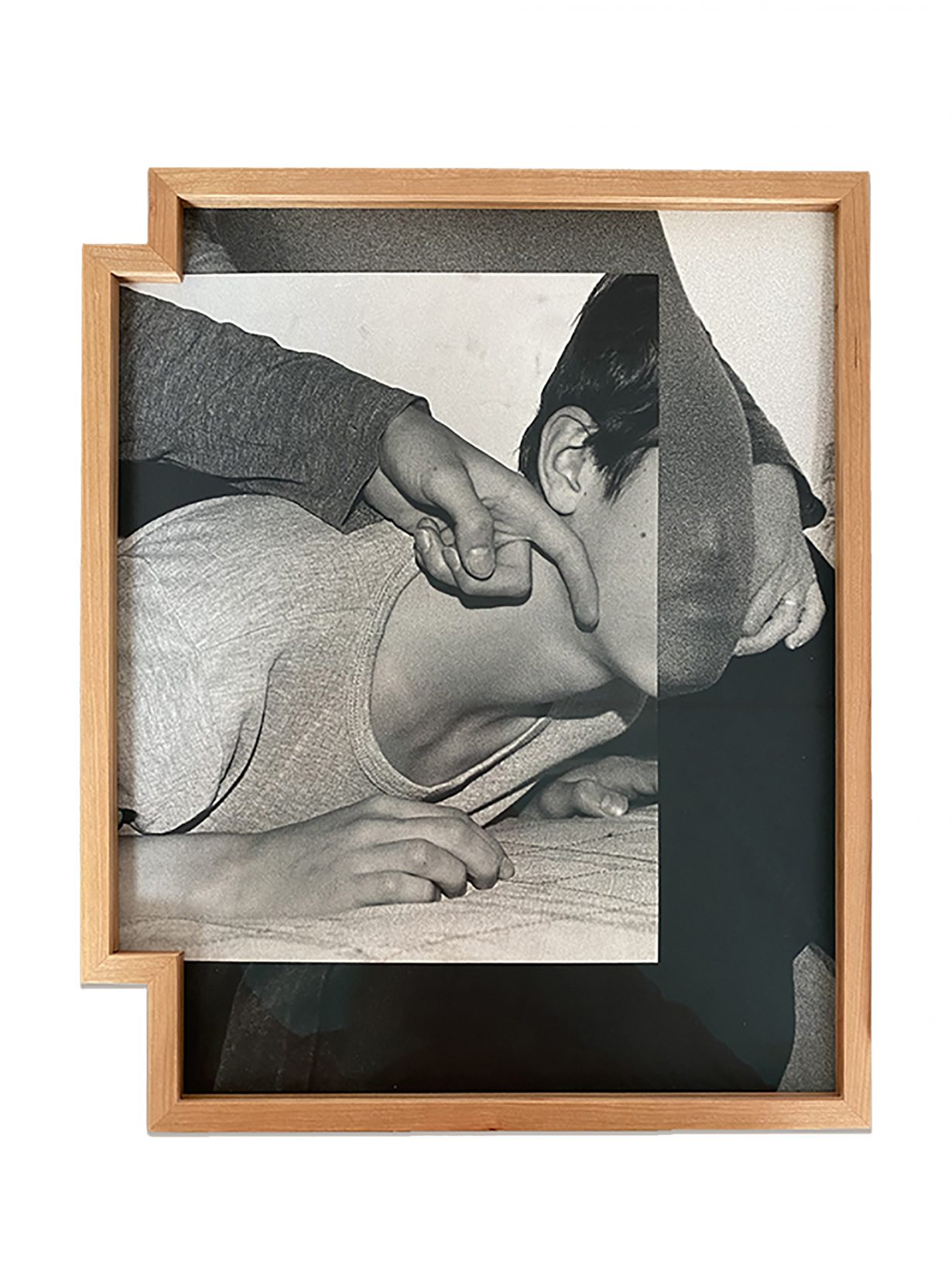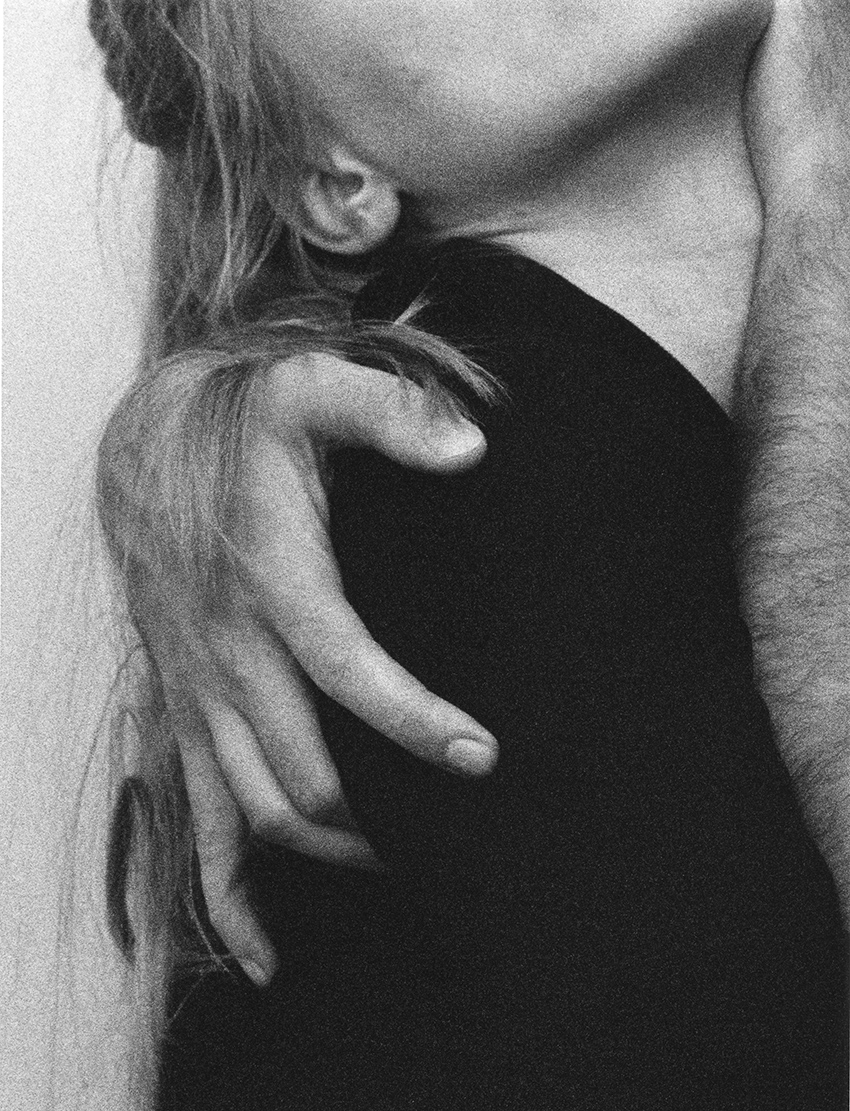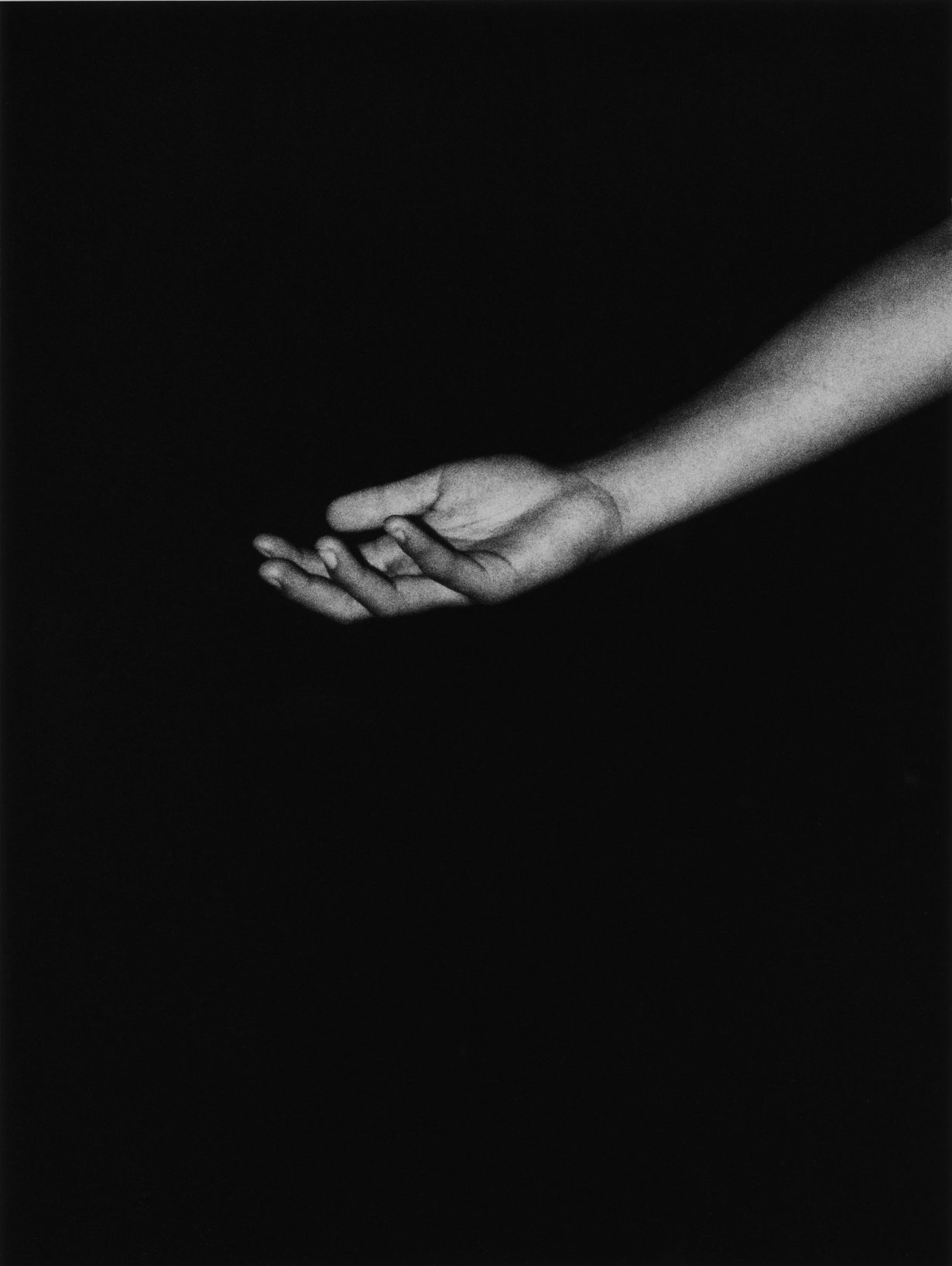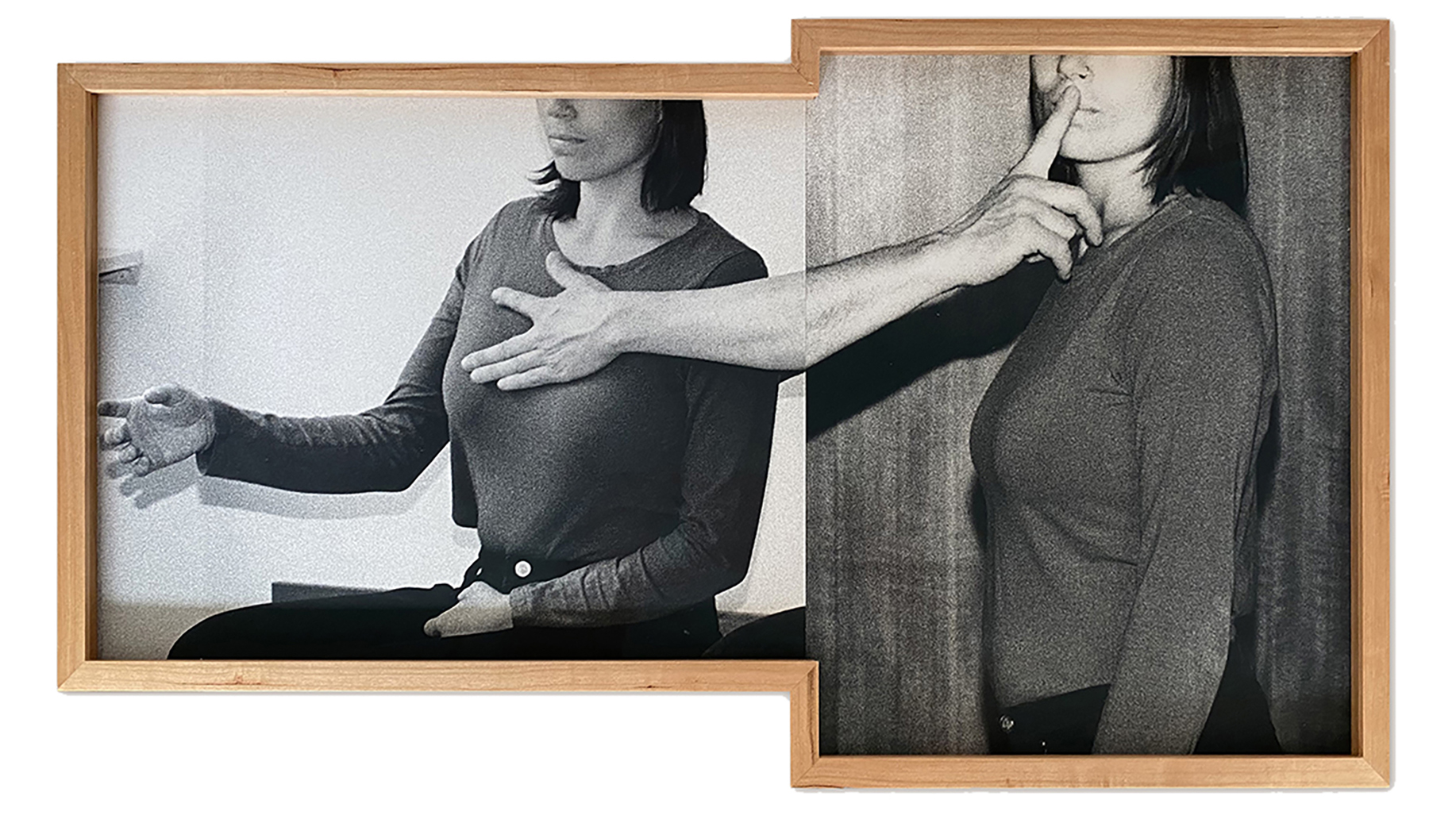A new show at Philadelphia’s Institute of Contemporary Art exposes the vulnerability implicit in any physical encounter
Hands predominate in Joanna Piotrowska’s black-and-white photographs of staged human interactions: they caress, comfort, hold and protect, but they also grab and intrude and maybe even abuse. The tension in the Polish artist’s images stems from the ambiguous nature of the physical contact she portrays. The hand that tightly grasps a woman’s shoulder in Untitled (2014), for instance, could be passionate, consoling, possessive or violent. In this cramped closeup, we see only the woman’s jaw, thrust back, and a bulwark of body hair and skin pressed against her sternum. By withholding clarifying context, like facial expressions, Piotrowska exposes the vulnerability implicit in any physical encounter and encourages viewers to project their own meaning onto the image.

In this, her first solo exhibition in the United States, Piotrowska’s photographs from the last decade are presented in a custom-designed installation that enhances their claustrophobic unease. The chalky pink carpeting covering half of the floorspace eerily records visitors’ footprints and mimics the stifling cosiness of her photographed domestic interiors. By nesting two small rooms within the exhibition’s larger galleries, she creates intimate spaces and narrow, mazelike corridors that disorient and confine. Piotrowska’s exhibition design, which prevents viewers from taking in more than two or three images at a time, echoes her photographic strategies for revealing and concealing content. With two multimedia collages (both Untitled, 2024), she guides our eyes to the interplay of hands by replacing large sections of the prints, including an entire figure, with inlaid wood veneer. In Strokes (2022), an off-centre window similarly draws our attention to a trio of hands, while piquing our interest in what is not shown.


Despite their grainy, documentary aesthetic, Piotrowska’s photographs are carefully choreographed. In a series of small, colourfully framed snapshots (Untitled, 2017–23), adults awkwardly inhabit makeshift forts they constructed from couch cushions, chairs and bedsheets – the type children build for imaginary play. Occupied by grownups, with their large, cumbersome bodies and heightened self-awareness, these cramped shelters look alarming but also unspontaneous, like stage sets. At times, she derives her subjects’ poses from group therapy and self-defence tactics. In Untitled (2017), two figures interlock at the shoulders in what could be either a backyard scuffle or a team-building exercise. In the four photographs that constitute Untitled (2014–23), women mime vaguely self-protective manoeuvres alone in residential settings. One contorts herself on all fours, for example, while another cowers in a foetal position. Their unhinged performances gesture to the threat of physical harm just outside the frame, to the spectre of unwelcome touch.
For her film Tactile Afferents (2023), Piotrowska turns to sheep and their handlers to further illustrate the complex dynamics of touch. A voiceover narrates excerpts from Irish philosopher Richard Kearney’s recent book on the subject as human hands groom, prod and pet the mostly compliant sheep. Heard throughout the galleries, Kearney’s musings on the power, vulnerability and reciprocity of touch complement Piotrowska’s work but threaten to literalise it as well, flattening our readings of her unsettlingly ambiguous pictures. “There are wanted and unwanted embraces,” the narration explains. The trouble, as Piotrowska illustrates, is how to distinguish between the two.
unseeing eyes, restless bodies at Institute of Contemporary Art, Philadelphia, through 1 December
